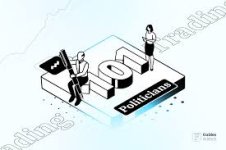The question of whether politicians should be allowed to engage in stock trading is one of the most controversial and ethically charged issues in modern politics. The public’s trust in elected officials is paramount to the functioning of any democratic society. However, when politicians are allowed to trade stocks, it raises serious concerns about conflicts of interest and the potential for insider trading.
One of the main arguments against politicians trading stocks is the inherent conflict of interest. Politicians often make decisions that directly affect the economy, industries, and markets. With access to sensitive information, they can potentially influence their financial portfolio through their positions of power. For instance, a lawmaker who knows about a pending legislation could buy stock in companies likely to benefit from it, creating an unfair advantage. This is exactly the type of insider trading that is illegal in the private sector, yet politicians are not always held to the same standard.
Moreover, the public’s perception of political corruption is fueled by such practices. When a politician buys or sells stock based on knowledge unavailable to the general public, it undermines trust in the integrity of the political system. The idea that elected officials might exploit their access to information for personal gain is a major factor contributing to widespread cynicism and dissatisfaction with government.
On the other hand, some argue that banning politicians from stock trading could infringe upon personal freedoms. Like any citizen, politicians should have the right to invest their money and build wealth. However, this argument fails to address the fact that elected officials are held to a higher ethical standard due to the public trust they carry. The primary concern should be protecting the integrity of public service rather than personal financial interests.
A solution could be the implementation of strict regulations. These might include requiring politicians to place their investments in blind trusts or to disclose their financial activities regularly. However, a complete ban on stock trading by politicians would ensure that no elected official can use their position for personal profit, further preserving public trust and fairness in the political system.
In conclusion, the risks associated with allowing politicians to trade stocks far outweigh the benefits. It is crucial to uphold the ethical standards of public service by enforcing transparency and accountability. To safeguard democracy and restore trust in the political system, a ban on stock trading for politicians may be the best course of action.
One of the main arguments against politicians trading stocks is the inherent conflict of interest. Politicians often make decisions that directly affect the economy, industries, and markets. With access to sensitive information, they can potentially influence their financial portfolio through their positions of power. For instance, a lawmaker who knows about a pending legislation could buy stock in companies likely to benefit from it, creating an unfair advantage. This is exactly the type of insider trading that is illegal in the private sector, yet politicians are not always held to the same standard.
Moreover, the public’s perception of political corruption is fueled by such practices. When a politician buys or sells stock based on knowledge unavailable to the general public, it undermines trust in the integrity of the political system. The idea that elected officials might exploit their access to information for personal gain is a major factor contributing to widespread cynicism and dissatisfaction with government.
On the other hand, some argue that banning politicians from stock trading could infringe upon personal freedoms. Like any citizen, politicians should have the right to invest their money and build wealth. However, this argument fails to address the fact that elected officials are held to a higher ethical standard due to the public trust they carry. The primary concern should be protecting the integrity of public service rather than personal financial interests.
A solution could be the implementation of strict regulations. These might include requiring politicians to place their investments in blind trusts or to disclose their financial activities regularly. However, a complete ban on stock trading by politicians would ensure that no elected official can use their position for personal profit, further preserving public trust and fairness in the political system.
In conclusion, the risks associated with allowing politicians to trade stocks far outweigh the benefits. It is crucial to uphold the ethical standards of public service by enforcing transparency and accountability. To safeguard democracy and restore trust in the political system, a ban on stock trading for politicians may be the best course of action.

